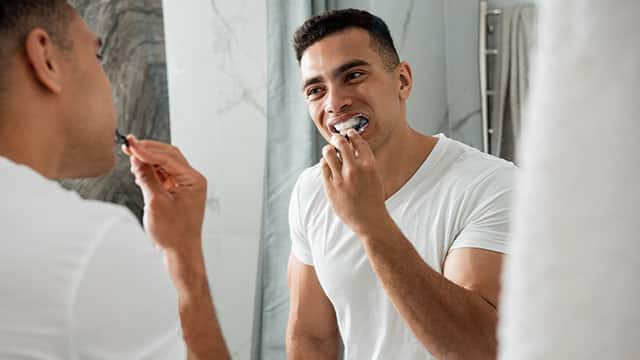Why Are Your Teeth Chattering?
The most common reason you'll experience teeth chatter is being in colder temperatures. Shivering is your body's natural way of producing heat by causing your muscles to contract and relax rapidly. When this happens in your jaw muscles, it can cause your teeth to click together. Some other reasons your teeth may chatter that have nothing to do with colder temperatures include:
Infection
- In some cases, your teeth might chatter because your body is trying to fight off an infection. When you have a fever, your body's internal temperature is higher. This causes normal room temperatures to feel cold, even though your body is actually warm. If you think you have an infection, contact your medical professional for diagnosis and treatment if you haven't already. By treating whatever infection you may have, you will be able to get rid of your chattering teeth.
Bruxism
- If you grind your teeth, you have a condition people in the dental profession call bruxism. This involuntary movement can cause jaw pain, headaches, the wearing away of tooth enamel, gum sensitivity, or chipped teeth. And some people who have bruxism experience teeth chattering in their sleep.
- If you have bruxism, talk with your dental or healthcare professional about what treatments are best for you. They may recommend a nighttime mouthguard, muscle relaxation exercises, consciously improving sleep habits (like avoiding caffeine before bed and keeping a regular sleep schedule), or biofeedback. Biofeedback uses sensors to monitor the electrical activity that causes muscle contraction. By having a newfound awareness of when you're clenching your teeth, you may be better able to control the tension in your jaw. Botox is also a treatment that has shown promise in helping with bruxism when other treatments don't do the trick.
Oromandibular Dystonia
- According to the Dystonia Medical Research Foundation, teeth chattering can also be associated with oromandibular dystonia, a condition that causes "forceful contractions" in your jaw or face muscles. The cause of this condition is unknown, but the Mayo Clinic says, "it might involve altered nerve-cell communication in several regions of the brain." It could also be a symptom of another condition, such as Parkinson's disease, Huntington's disease, or Wilson's disease, resulting from a traumatic brain injury, stroke, infection, or a reaction to certain medications.
- There are no treatments for this condition, but your healthcare professional may recommend medications that can help you manage the condition. They may also recommend speech therapy, physical therapy, or massage. In severe cases, surgery can help – electrodes are implanted into your brain, or the nerves that cause your muscles to react are removed.
If your teeth are chattering, it may just be a sign that you're cold. But if you suspect there's something else going on, it's always a good idea to schedule a check-up with your healthcare professional. If your dentist or doctor determines that infection, bruxism, or dystonia are behind your chattering, they will work with you to develop a treatment that keeps you smiling.
Oral Care Center articles are reviewed by an oral health medical professional. This information is for educational purposes only. This content is not intended to be a substitute for professional medical advice, diagnosis or treatment. Always seek the advice of your dentist, physician or other qualified healthcare provider.
ORAL HEALTH QUIZ
What's behind your smile?
Take our Oral Health assessment to get the most from your oral care routine
ORAL HEALTH QUIZ
What's behind your smile?
Take our Oral Health assessment to get the most from your oral care routine















